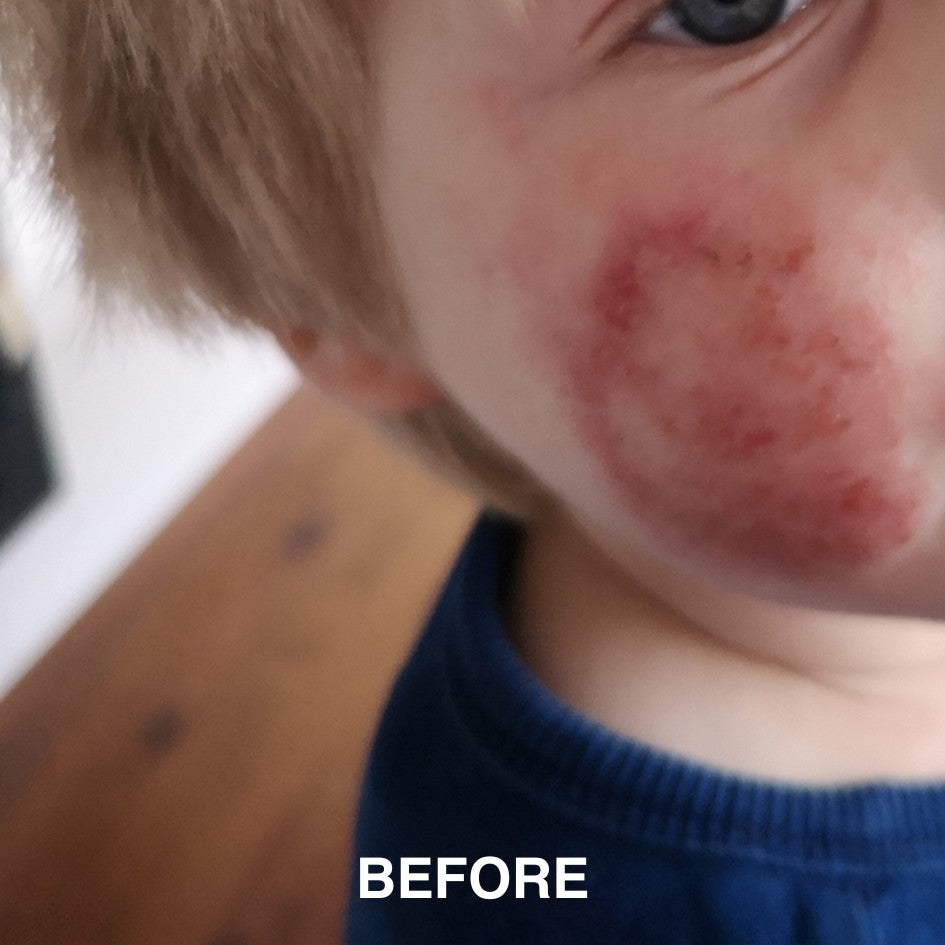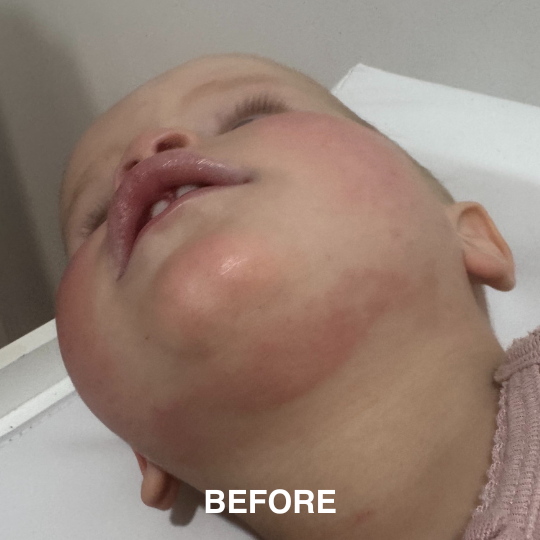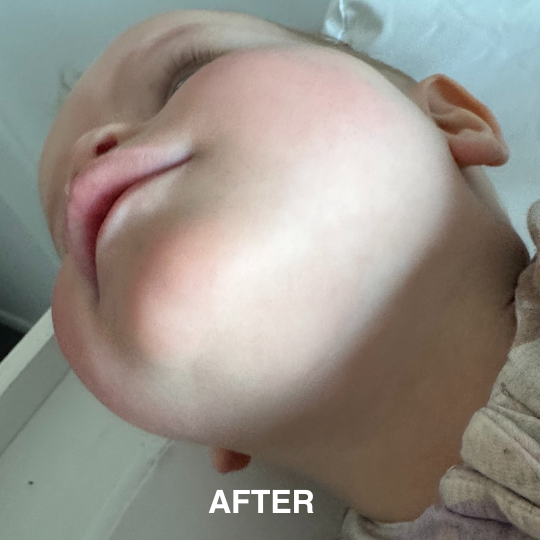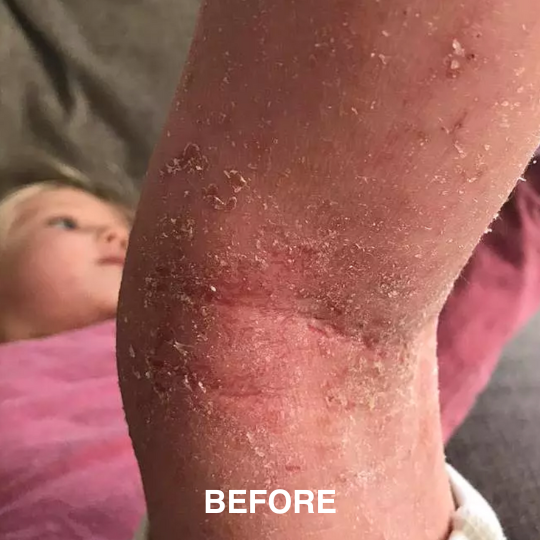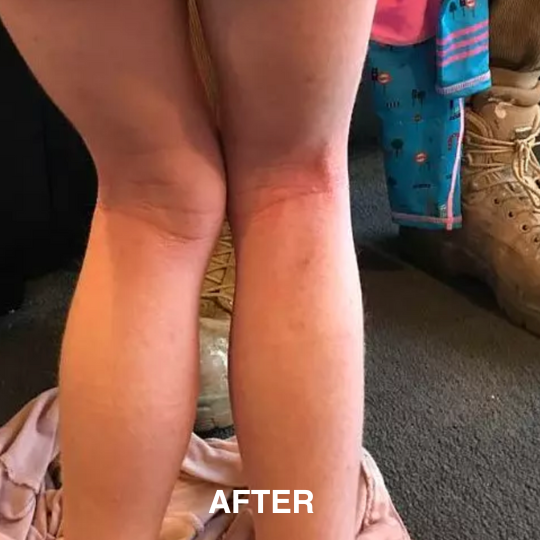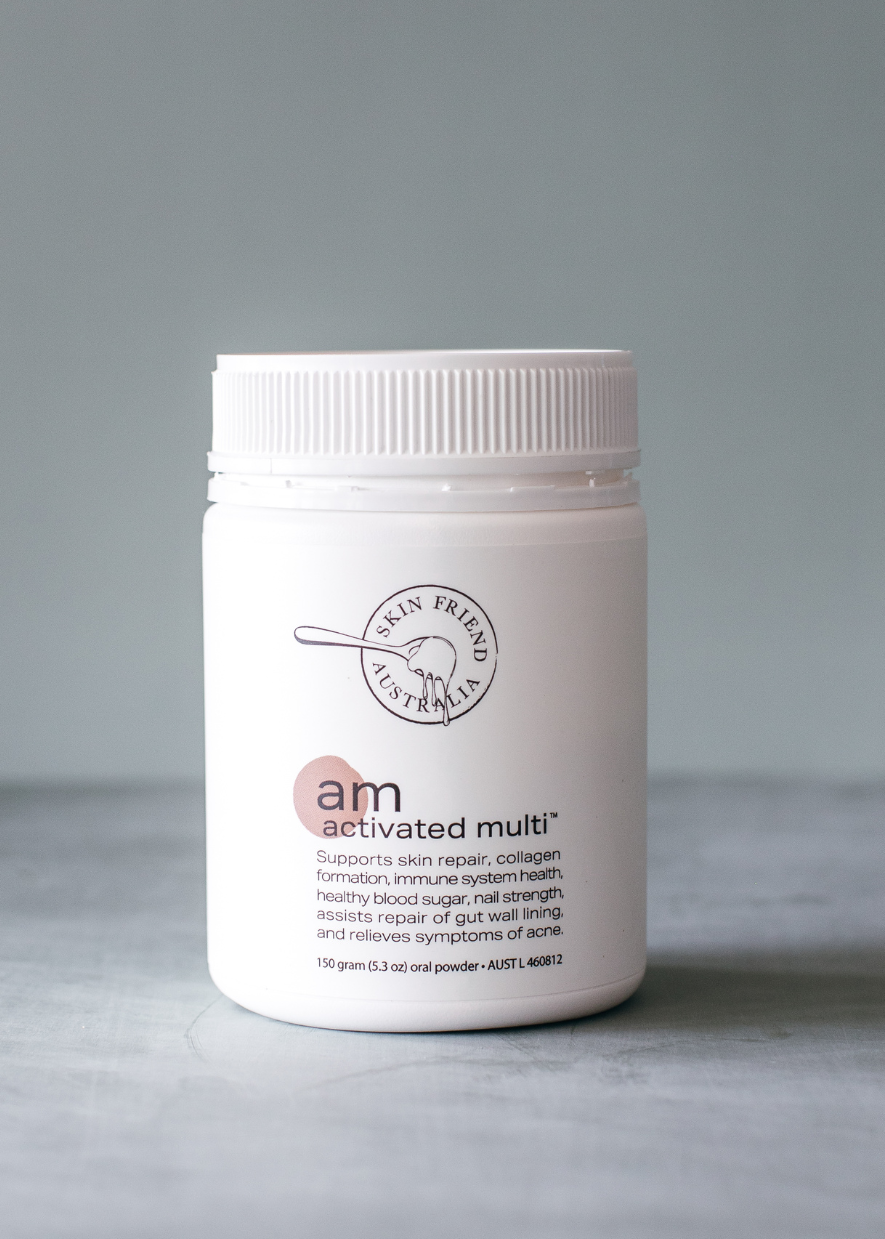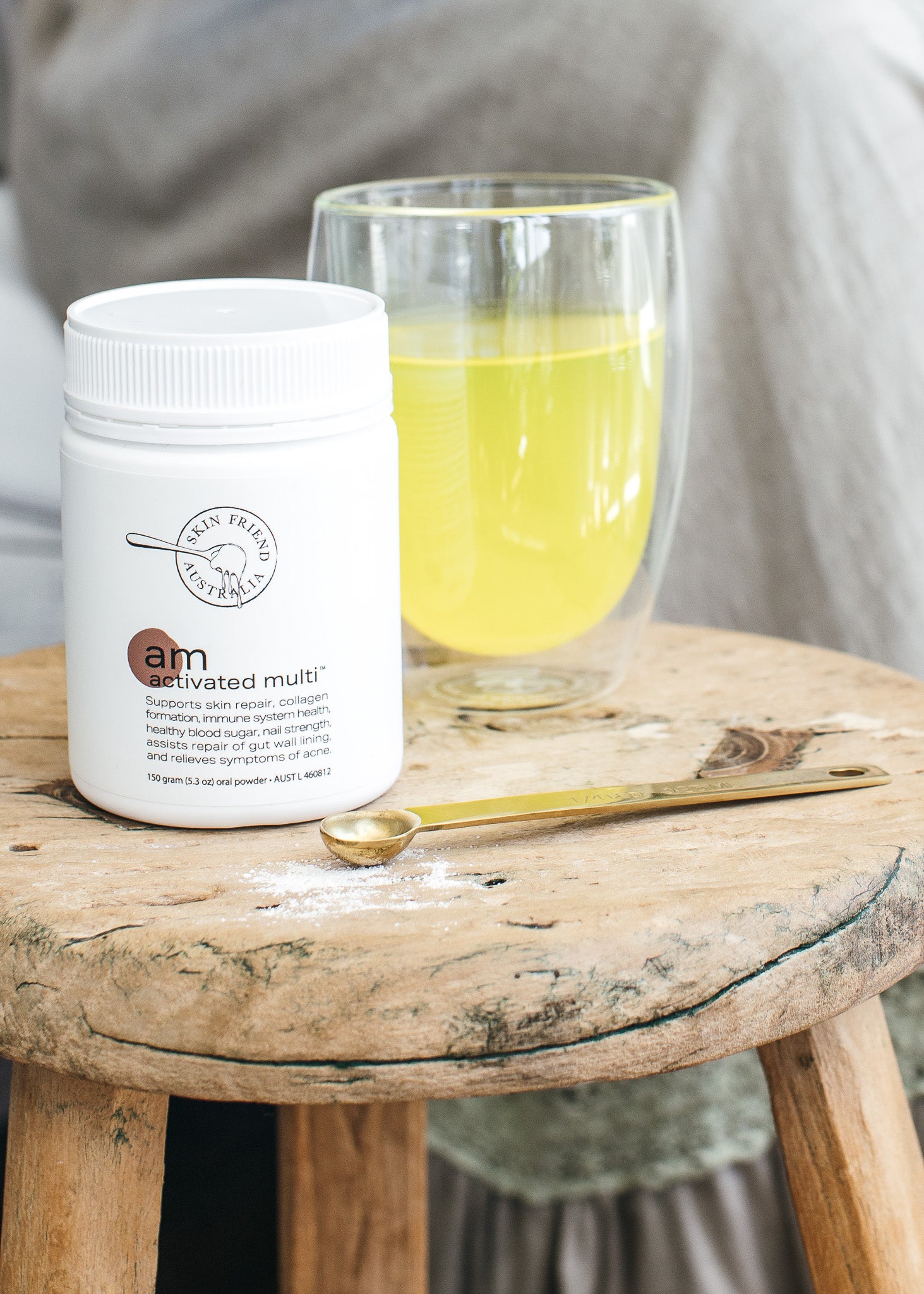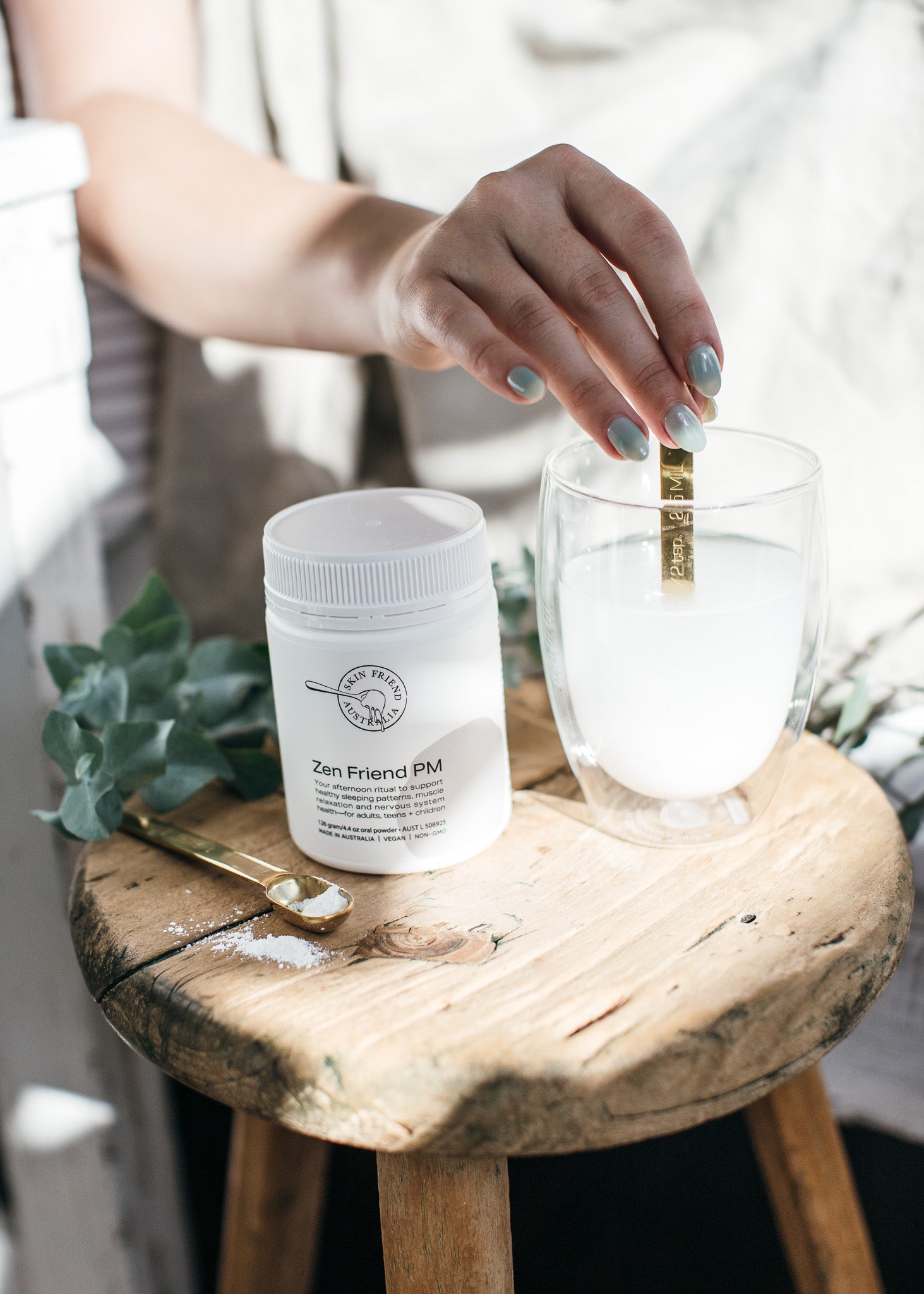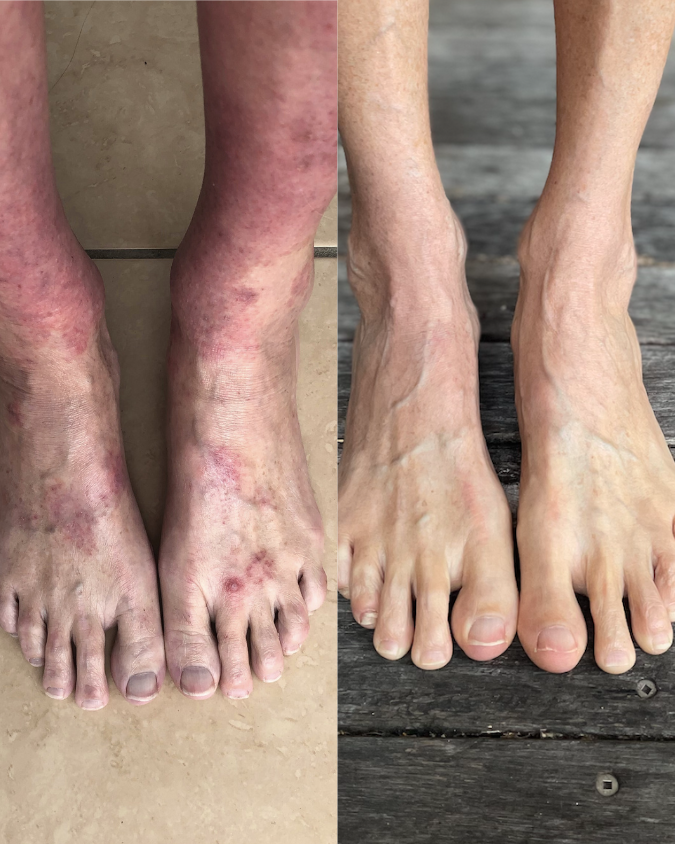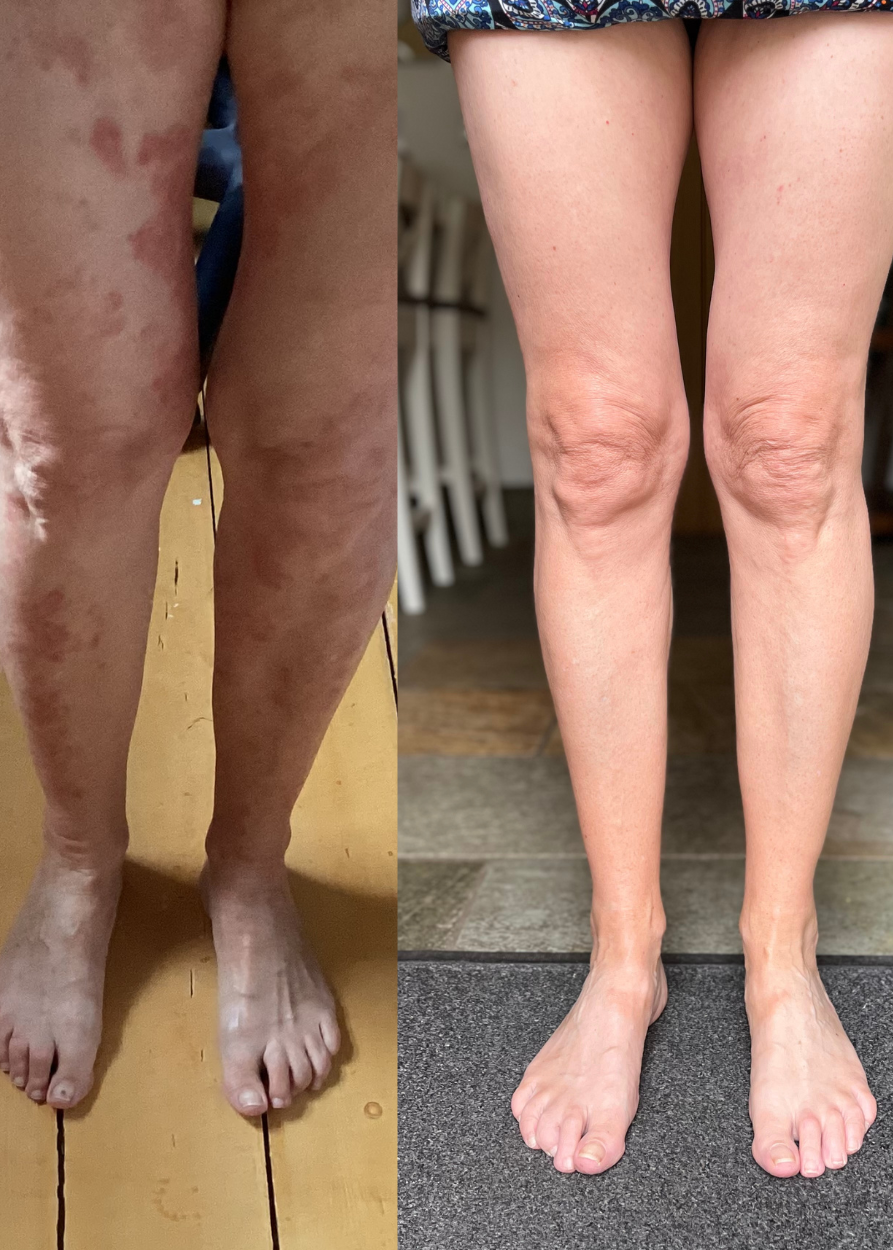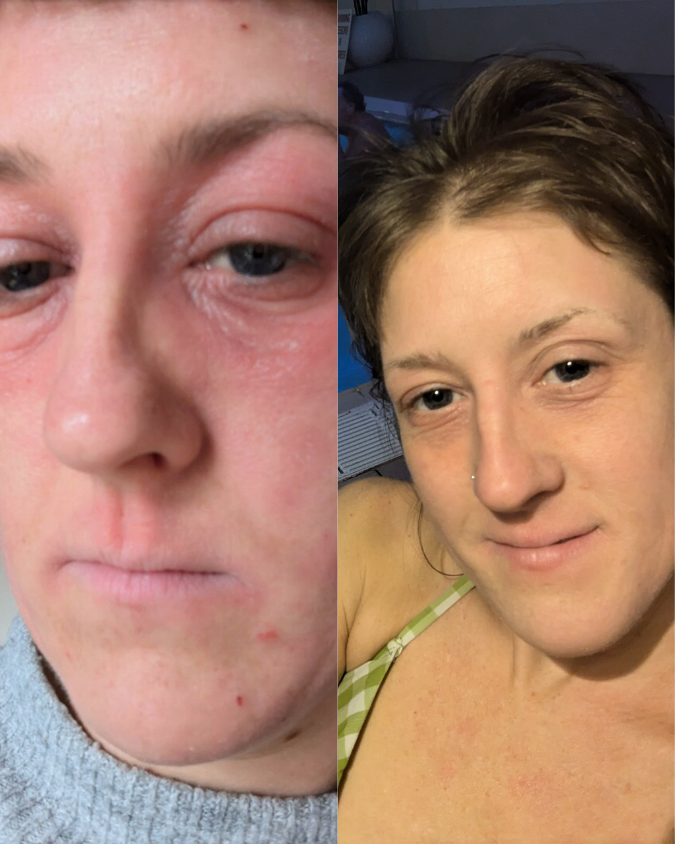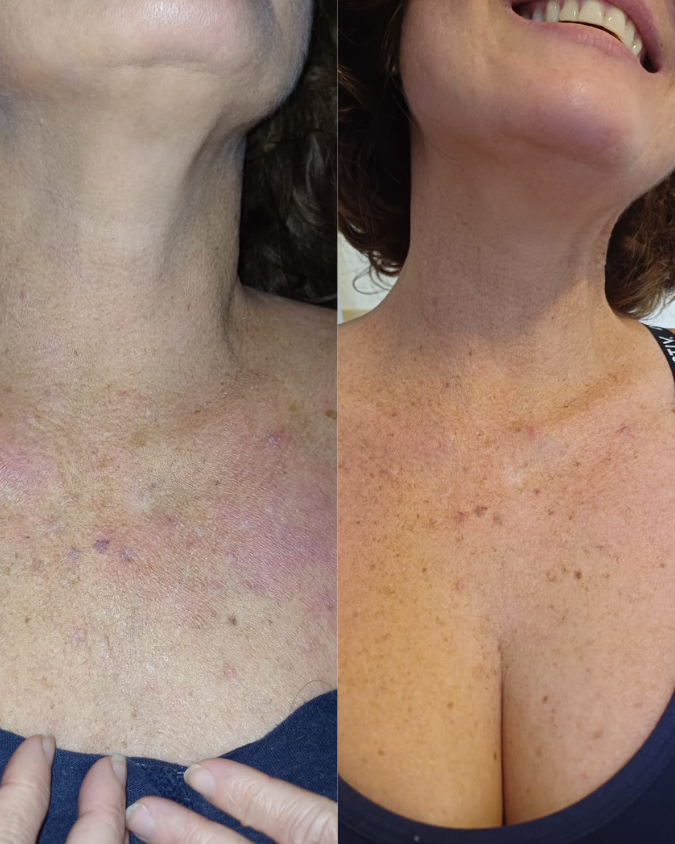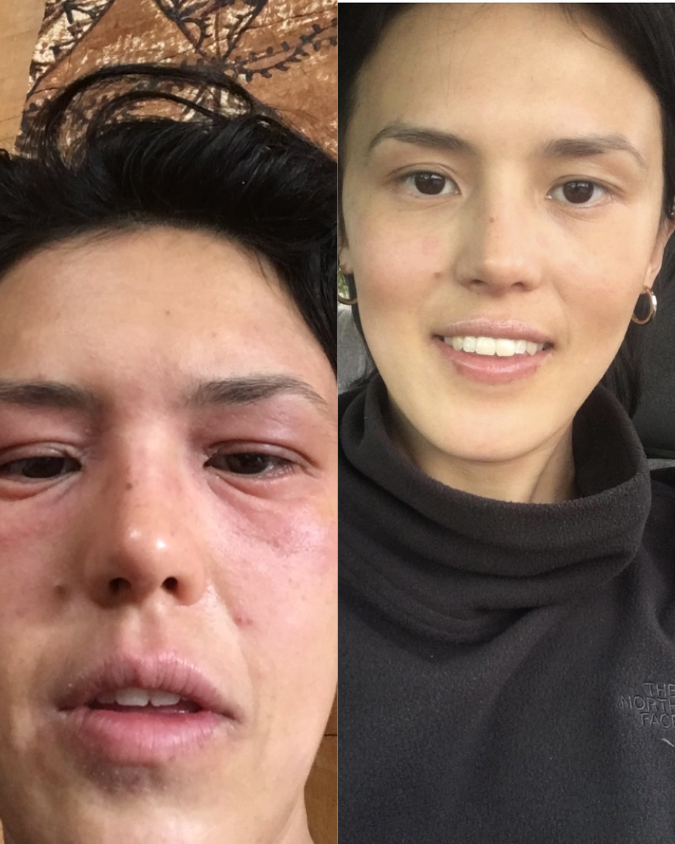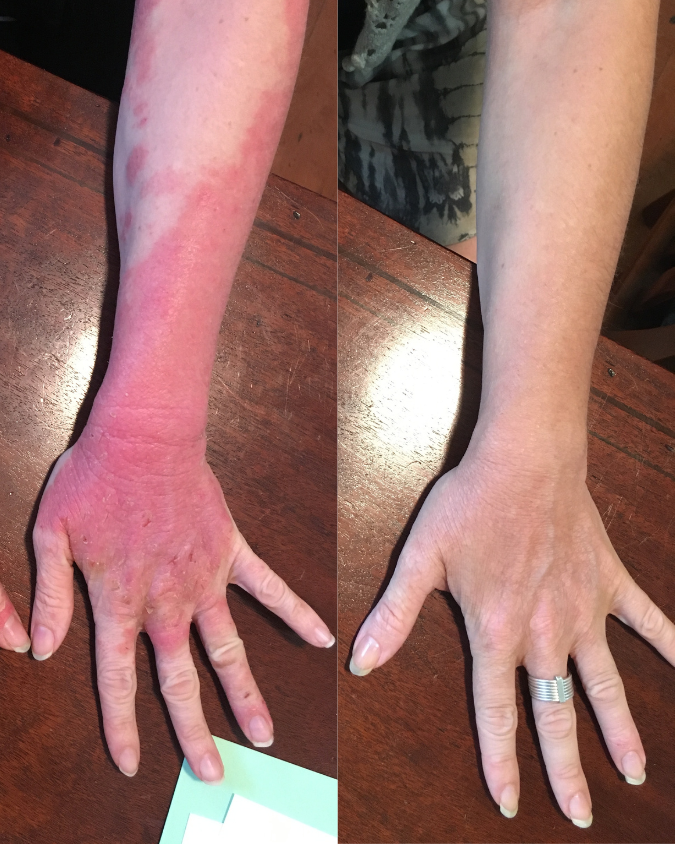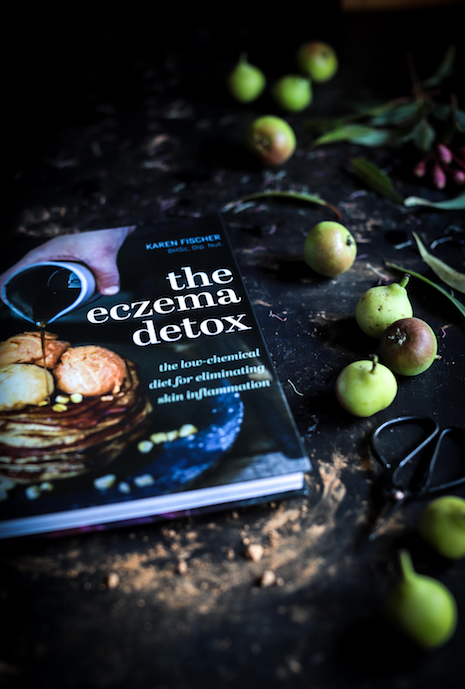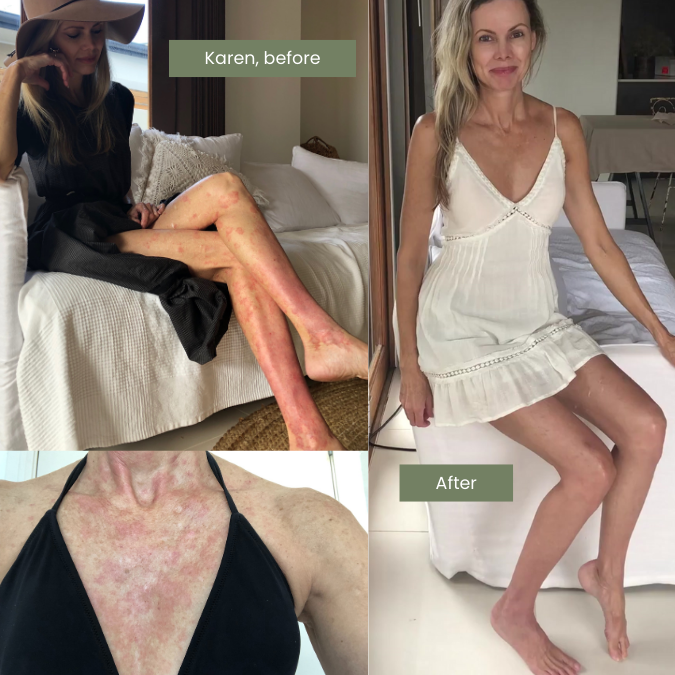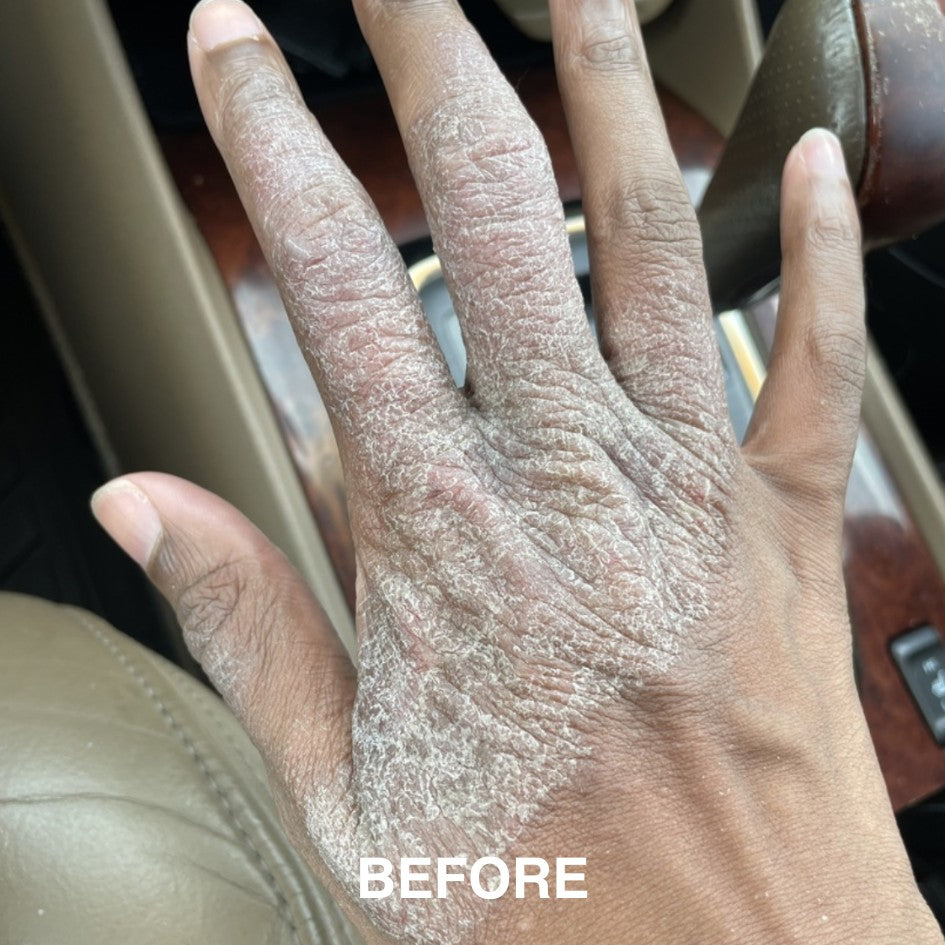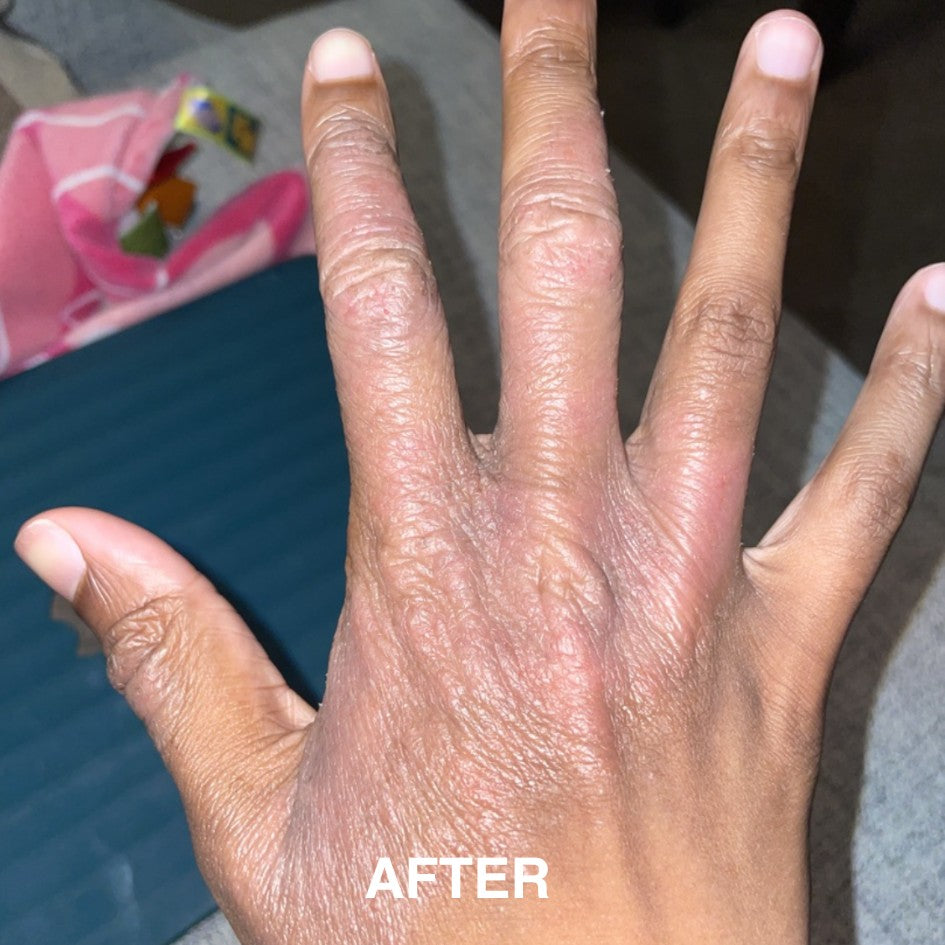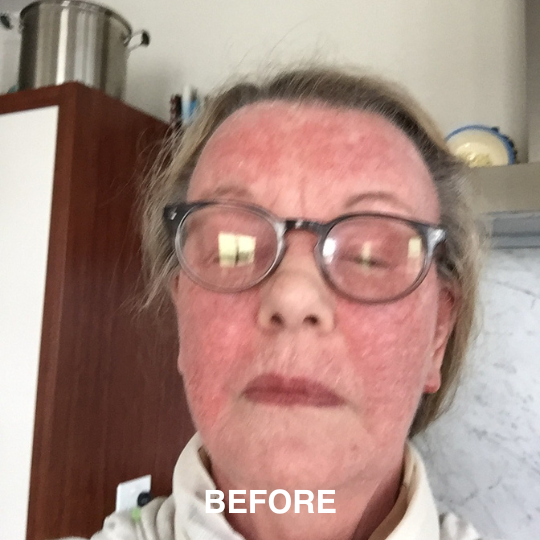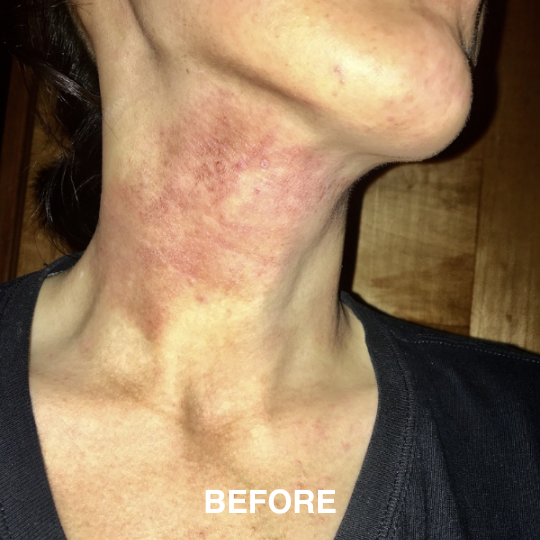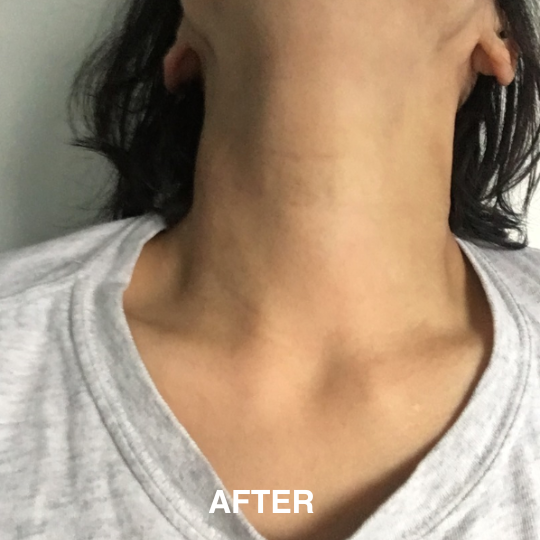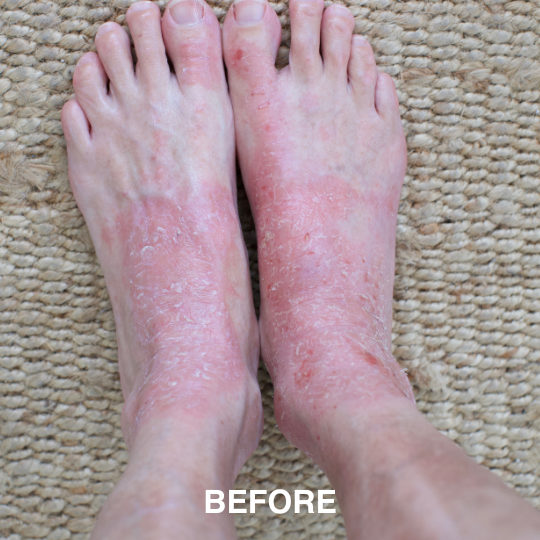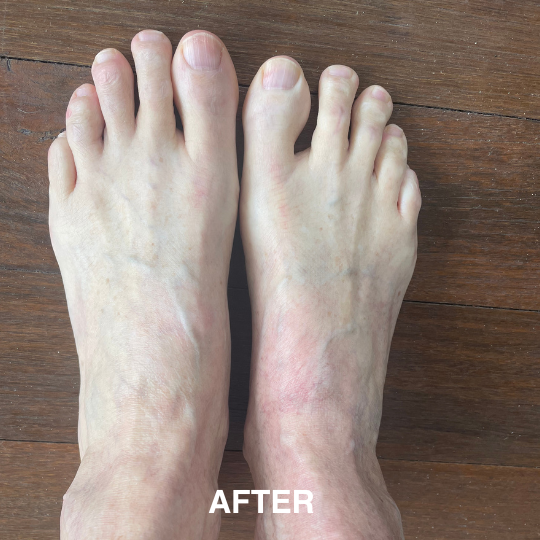If you’re living with eczema, you’ve probably asked yourself at some point: Could what I’m eating be making this worse? The relationship between eczema and lactose intolerance is more complex than it seems, and allergies are not only a dairy issue.
Research shows that eczema doesn’t just coexist with food allergies —eczema may actually precede them, highlighting the importance of identifying and managing food triggers to support your skin’s health (Tsakok, 2016). This means your eczema might actually cause food allergies to later appear, so it's important to look into food allergy.

Understanding the Link Between Eczema and Milk Allergies
Eczema, also known as atopic dermatitis, is more than just dry, irritated skin. It’s a condition linked to immune system dysfunction and inflammation, which can leave your skin barrier weakened and reactive. This weakened barrier may increase the risk of developing food allergies over time.
In fact, a systematic review published in the Journal of Allergy and Clinical Immunology found evidence that eczema often comes before food allergies, suggesting a causal connection. This means that managing your eczema isn’t just about soothing your skin — it’s about reducing the potential for new sensitivities to develop.
Eczema, Milk Allergies, and Lactose Intolerance: What’s the Difference?
Dairy products are one of the most common food triggers for people with eczema (Christensen, 2023). However, it’s important to distinguish between different types of reactions:
- Eczema and Milk Allergy: A milk allergy involves an immune system reaction to milk proteins, which can lead to symptoms like hives, swelling, or difficulty breathing. For some people, this immune response can also trigger or worsen eczema flare-ups.
- Eczema and Lactose Intolerance: Lactose intolerance, on the other hand, is not an immune response. It occurs when your body has difficulty digesting lactose, a sugar found in milk. While it doesn’t cause eczema directly, the digestive discomfort can still contribute to systemic inflammation, potentially exacerbating skin symptoms.
- Allergic Reaction vs. Eczema: While an allergic reaction can cause immediate and obvious symptoms, eczema is often a slower, chronic process. If you notice your eczema flaring after consuming dairy, it could be worth exploring whether you have a milk allergy or lactose intolerance.
Why Identifying Food Triggers Matters
Understanding how your body reacts to certain foods is key to managing eczema more effectively.
While not everyone with eczema has a milk allergy, for those who do, removing allergens from your diet can significantly reduce flare-ups.
Common food triggers for eczema include:
- Dairy (milk, cheese, butter)
- Eggs
- Soy
- Peanut
- Wheat
It’s important to approach elimination diets with guidance, as removing major food groups can lead to nutritional gaps. If you suspect dairy may be a trigger, focus on replacing its nutrients, particularly calcium, with alternatives like supplements.
Filling Nutritional Gaps: Why Calcium Matters
While lactose intolerance can be a huge contributor to eczema and lactose malabsorption is linked to childhood eczema, dairy, the primary source of lactose, is also a major source of calcium, which is essential for skin health. Calcium supports the skin barrier and plays a role in regulating inflammation (Lee, 2018). If you’re cutting out dairy, ensuring you’re getting enough calcium from other sources is critical.
This is where a supplement like Skin Friend PM comes in. Designed specifically for eczema-prone skin, it provides calcium along with other nutrients that support skin repair and skin barrier function, helping to fill the nutritional gaps left by a dairy-free diet.
Tips for Managing Eczema and Milk Allergies
-
Keep a Food and Symptom Diary
Tracking what you eat and how your skin reacts can help you identify patterns over time.
-
Focus on Anti-Inflammatory Foods
Incorporate foods rich in omega-3s (like flaxseeds), antioxidants (like blueberries, turmeric and red cabbage), and zinc to help calm inflammation. The Eczema Detox provides a food intolerance diagnosis (FID) program that can help you identify food intolerances while providing an anti-inflammatory diet to follow.
-
Hydrate and Protect Your Skin
Use a barrier-strengthening moisturizer or rash cream like our Eczema Friend to restore the skin barrier.
-
Support Your Gut Health
A healthy gut can reduce systemic inflammation. Consider adding daily gut health supplements such as Skin Friend AM Activated Multi to your routine to assist the repair of the gut wall lining and support skin repair.
-
Test and Reintroduce with Care
If you suspect a food is a trigger, eliminate it for a few weeks and then reintroduce it gradually under the guidance of a healthcare professional.
Allergic Reactions vs Eczema
The connection between eczema and lactose intolerance highlights the importance of treating eczema as more than a skin-deep issue.
By understanding and addressing potential food triggers, filling nutritional gaps with supplements, and supporting your body holistically, you can take meaningful steps toward clearer, healthier skin. Click here to shop AM skin supplements or buy a calcium supplement for eczema to fill nutrient gaps and get the clear skin you deserve.
Click for references
Malik TF, Panuganti KK. (2023). Lactose Intolerance. In: StatPearls [Internet]. Treasure Island (FL): StatPearls Publishing. https://www.ncbi.nlm.nih.gov/books/NBK532285/
Christensen MO, et al. (2023). Prevalence of and association between atopic dermatitis and food sensitivity, food allergy and challenge-proven food allergy: A systematic review and meta-analysis. J Eur Acad Dermatol Venereol. 37(5):984-1003. https://pubmed.ncbi.nlm.nih.gov/36695076/. DOI: 10.1111/jdv.18919. PMID: 36695076.
Lee SE, Lee SH. (2018). Skin Barrier and Calcium. Ann Dermatol. 30(3):265-275. https://pmc.ncbi.nlm.nih.gov/articles/PMC5929942/. DOI: 10.5021/ad.2018.30.3.265. PMID: 29853739; PMCID: PMC5929942.
Tsakok T, et al. (2016). Does atopic dermatitis cause food allergy? A systematic review. J Allergy Clin Immunol. 137(4):1071-1078. https://pubmed.ncbi.nlm.nih.gov/26897122/. DOI: 10.1016/j.jaci.2015.10.049. PMID: 26897122.
Grimbacher B, Peters T, Peter HH. (1997). Lactose-intolerance may induce severe chronic eczema. Int Arch Allergy Immunol. 113(4):516-518. https://pubmed.ncbi.nlm.nih.gov/9250600/. DOI: 10.1159/000237632. PMID: 9250600.
Rudzeviciene O, et al. (2004). Lactose malabsorption in young Lithuanian children with atopic dermatitis. Acta Paediatr. 93(4):482-486. https://pubmed.ncbi.nlm.nih.gov/15188975/. PMID: 15188975.




